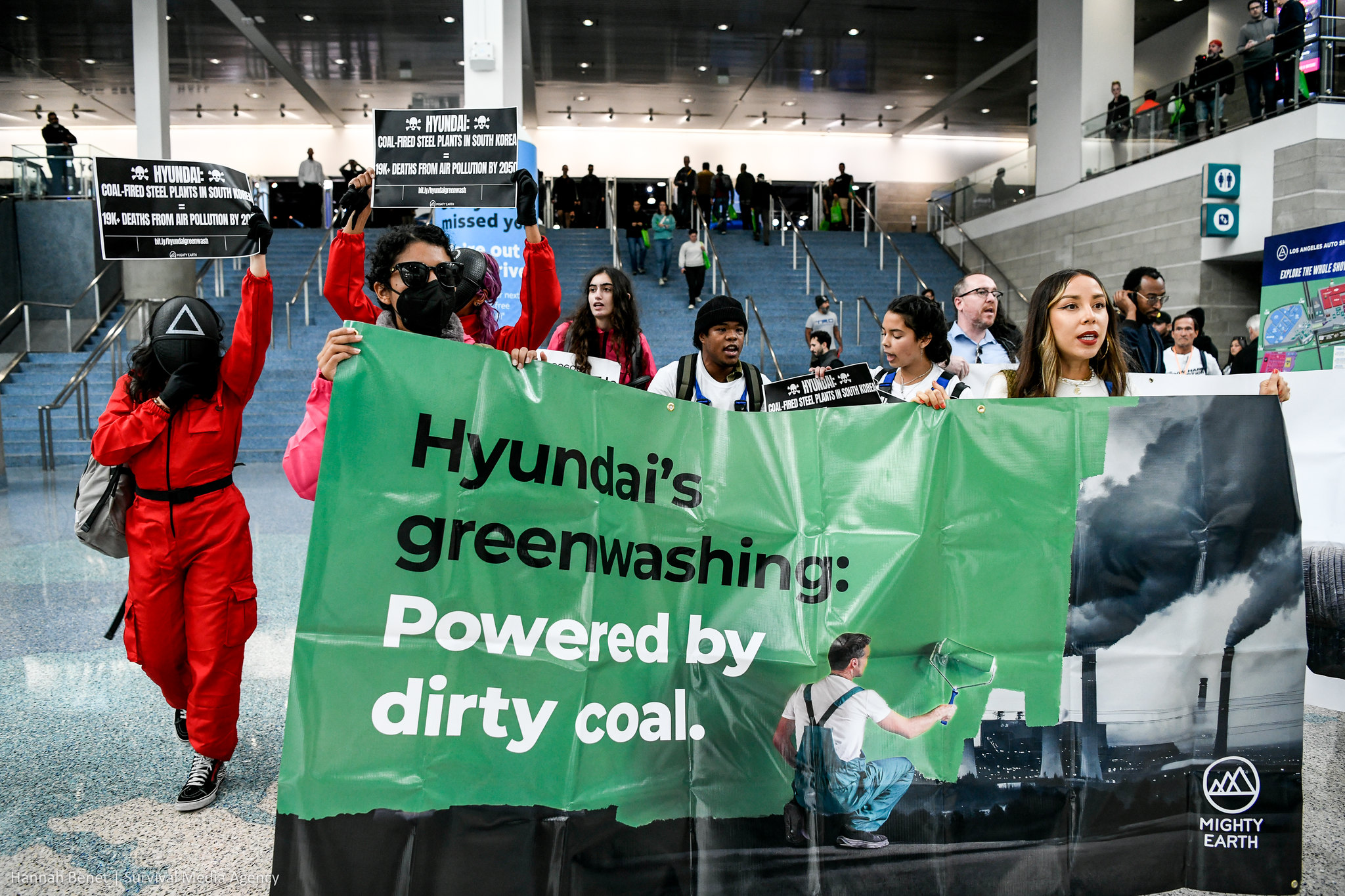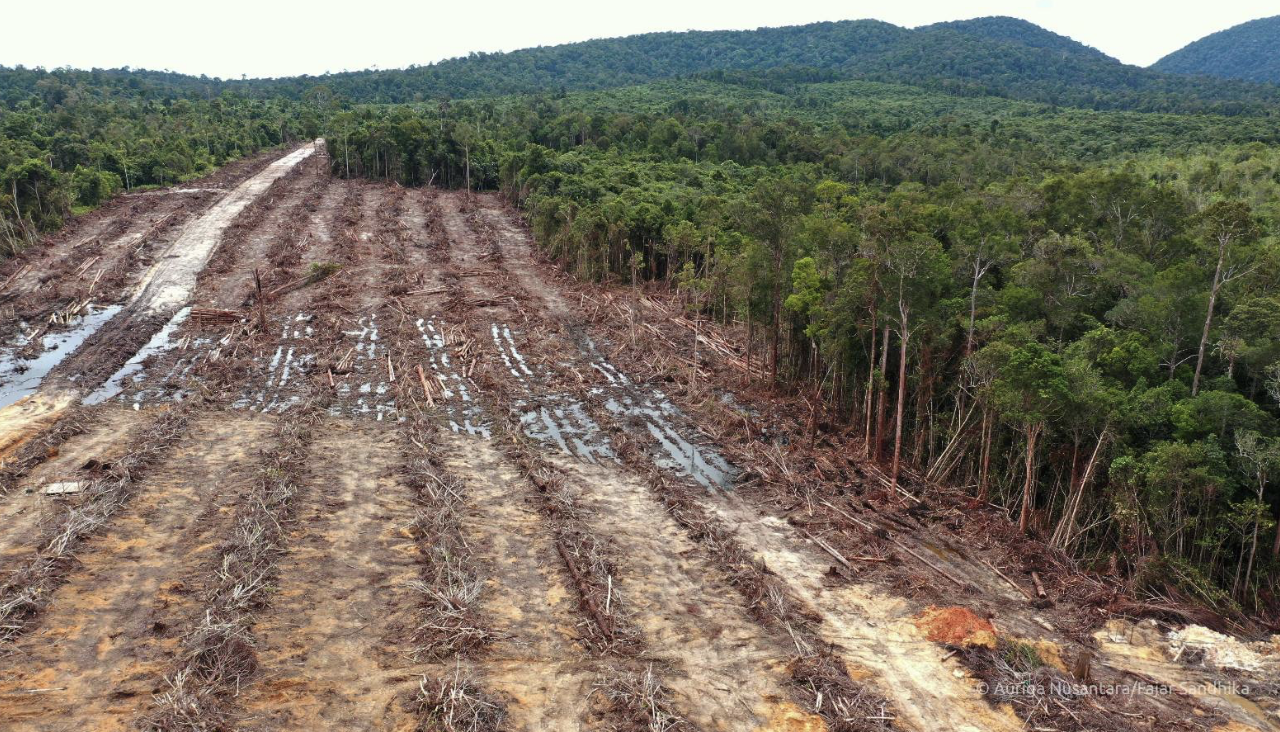
CEO Note: EVs without Tesla
By Glenn Hurowitz, Founder & CEO
Tesla is back in the spotlight this week as reports show sales declining in the U.S. and down an eye-popping 49% in Europe – even as demand for EVs in both markets is growing. Meanwhile, Tesla CEO Elon Musk’s so-called “Department of Government Efficiency” is sabotaging climate action, kicking environmental cops off the job, and gutting the ability of the U.S. government to stop oil, coal, and meat companies from pouring pollution into the air and water.
The Lead the Charge coalition (of which Mighty Earth is a member) recently ranked the world’s top automakers on their efforts to eliminate fossil fuels, environmental harms and human rights abuses from their supply chains. Tesla actually scored highest due to improvements the company made throughout its supply chains in respect to both climate impact and human rights protections.
The contrast between Musk disemboweling America’s basic environmental protections and Tesla’s ranking poses a tricky question for climate hawks – are there electric vehicles we can feel good about buying?
It’s critical to not overstate Tesla’s recent troubles as a sign of dramatic decline in EVs overall – or in Americans’ interest in buying them. According to U.S. Department of Energy’s Alternative Fuels Data Center, the number of registered electric vehicles in the U.S. has been steadily increasing since 2021, growing from 1.45 million in 2021 to over 3.55 million in 2023.
But whether or not you’re boycotting Tesla, you should have more than one clean EV option. That’s why Mighty Earth and our allies are pushing other companies to transform their supply chains and offer more responsible EVs.
For example, Hyundai is a popular alternative to Tesla, and the company has shown an interest in prioritizing the U.S. market. In anticipation of the recently announced auto tariffs, Hyundai unveiled a $21 billion dollar investment in U.S. manufacturing and supply chain development.
Hyundai’s plan includes a new steel plant in Louisiana, which is set to hire about 1,500 employees and will produce steel for Hyundai’s electric vehicles. The new plant will use an electric arc furnace, which can run as cleanly as the power grid it draws from, but is also likely to use natural gas to refine raw iron. That makes the news a strange sort of half-win: as my colleague Matthew Groch told Canary Media, “Is this a step toward sustainable, green steel? Maybe not so much. But is it a step away from blast furnaces? Yes, which is the beginning part of transitioning the primary steel industry to low-carbon production.”
But Hyundai still has a lot of work to do to clean up its broader EV supply chains. The company’s steel remains linked to Russian coal, labor violations, pollution-related deaths, and the disappearance of activists around the world. Progress truly worth celebrating would be Hyundai committing to steel made with green hydrogen instead of dirty coal or natural gas – and with full protections for human rights and the environment.
The EV transition is still coming, and switching to an electric vehicle is still a great way you can help reduce climate pollution: according to the U.S. Department of Energy, the average gasoline-burning car emits 12,594 pounds of carbon dioxide each year; the average electric vehicle is responsible for less than 22% of that (2,727 pounds). But we’re continuing to push auto companies to fully address the environmental impacts of their supply chains – including steel, rubber, leather, and even battery components.
Because with Tesla potentially on the decline, other automakers have both an opportunity and a responsibility to step up with vehicles that can help make up for at least some of the pollution that Musk and Trump are spewing into the atmosphere.
—
© 2025. The text of this article is openly licensed under Creative Commons (CC BY-ND 4.0); you are free to copy and redistribute or republish the article in its entirety with attribution and credit.


